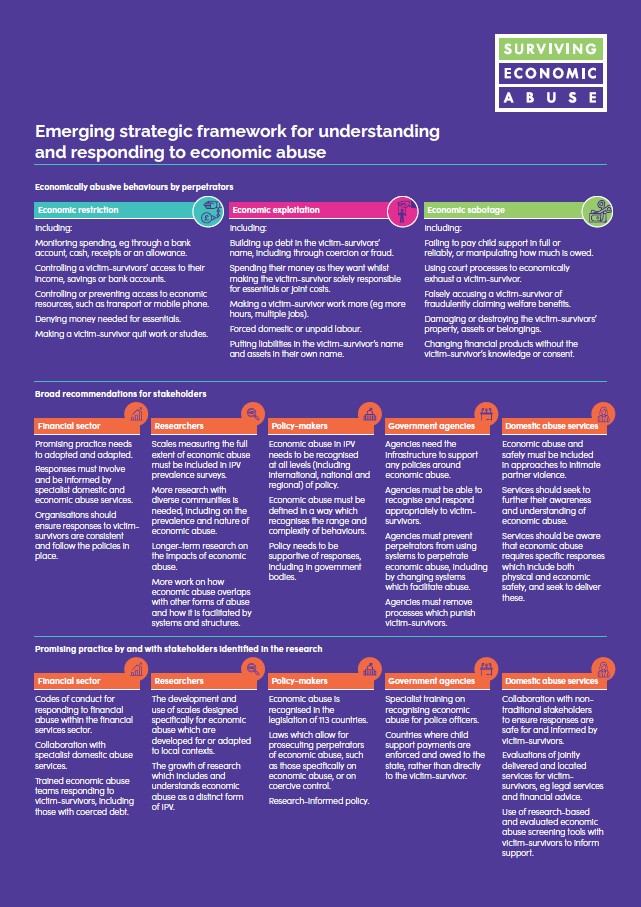The Implications Of ABUSA On The Global Economy

Table of Contents
ABUSA's Impact on International Trade
ABUSA's influence on international trade is profound, manifesting primarily through increased protectionism and shifts in global trade relationships.
Increased Trade Barriers and Protectionism
ABUSA's austerity measures have led to a rise in protectionist policies globally. Many nations, facing economic strain, are implementing:
- Higher Tariffs: Increased tariffs on imported goods aim to protect domestic industries but often lead to retaliatory measures and trade wars. For example, the increased tariffs on steel imports under ABUSA have sparked disputes with major trading partners.
- Quotas: Limits on the quantity of imported goods further restrict trade flows, impacting global supply chains and potentially leading to shortages. The implementation of quotas on agricultural products under ABUSA has already shown negative consequences for consumer prices.
- Non-Tariff Barriers: These include complex regulations, bureaucratic hurdles, and sanitary and phytosanitary standards, making imports more difficult and expensive. ABUSA's emphasis on domestic production has led to stricter non-tariff barriers, hindering international trade.
These trade barriers disrupt established global supply chains, leading to higher prices for consumers and reduced competitiveness for businesses involved in international trade.
Shifting Global Trade Relationships
ABUSA is reshaping global trade relationships, fostering both collaboration and conflict.
- New Trade Blocs: Some nations are forming new regional trade alliances to circumvent ABUSA's restrictions, leading to a fragmented global trading system. The formation of the "ABUSA-resistant bloc" illustrates this trend.
- Strained Relations within Existing Agreements: ABUSA's protectionist measures challenge the principles of free trade embodied in agreements like the WTO, leading to increased disputes and potential renegotiations. The ongoing disputes between nations regarding ABUSA-related trade restrictions highlight this challenge.
- Economic Sanctions: Countries might impose economic sanctions on nations perceived to be violating ABUSA's principles, further complicating international trade relationships.
ABUSA's Effects on Financial Markets
ABUSA's influence extends significantly to global financial markets, introducing volatility and impacting exchange rates.
Volatility and Uncertainty in Investment
The implementation of ABUSA has injected uncertainty into global markets, affecting investment decisions.
- Market Fluctuations: Concerns about the long-term economic effects of ABUSA have led to significant market fluctuations, including sharp drops in stock prices in various sectors.
- Reduced Foreign Direct Investment (FDI): The uncertainty surrounding ABUSA's impact has discouraged foreign direct investment, hindering economic growth in affected nations.
- Capital Flight: Investors are moving their capital to perceived safer markets, further destabilizing the economies of countries heavily impacted by ABUSA's policies.
Currency Fluctuations and Exchange Rates
ABUSA's economic policies have significantly impacted currency exchange rates, causing instability in global financial systems.
- Sharp Currency Devaluations: Some currencies have experienced sharp devaluations due to investor concerns about the long-term consequences of ABUSA.
- Increased Transaction Costs: Fluctuations in exchange rates increase the transaction costs for international businesses, hindering trade and investment.
- Potential for Currency Crises: The combined impact of ABUSA on trade and investment increases the risk of currency crises, particularly in developing nations.
ABUSA's Socioeconomic Consequences
ABUSA has far-reaching socioeconomic consequences, affecting employment, wages, poverty, and economic development.
Impact on Employment and Wages
ABUSA's policies have had mixed effects on employment and wages.
- Job Losses in Certain Sectors: The protectionist measures under ABUSA have led to job losses in some export-oriented industries.
- Job Creation in Other Sectors: However, some sectors benefit from increased domestic demand and protection, leading to new job creation.
- Increased Income Inequality: The uneven distribution of benefits and costs associated with ABUSA has likely exacerbated income inequality.
Effects on Poverty and Development
The impact of ABUSA on poverty and development is particularly concerning.
- Reduced Foreign Aid: Some countries have reduced their foreign aid commitments due to domestic economic pressures related to ABUSA.
- Obstacles to Sustainable Development Goals (SDGs): ABUSA's policies can hinder progress toward achieving sustainable development goals, particularly in developing countries.
- Increased Poverty: The economic disruptions caused by ABUSA can push more people into poverty, particularly in vulnerable populations.
Conclusion
ABUSA's implementation has had a profound and multifaceted impact on the global economy. Its effects on international trade, financial markets, and socioeconomic conditions are interconnected and far-reaching. The rise of protectionism, increased market volatility, and potential for exacerbated poverty highlight the serious challenges posed by ABUSA. Understanding the long-term consequences of ABUSA is crucial for policymakers, businesses, and individuals alike. Continue your research on ABUSA and its effects to better prepare for the challenges and opportunities that lie ahead in the global economy. Further analysis of ABUSA and its variations is needed to mitigate its negative effects and harness any potential benefits.

Featured Posts
-
 1 050 V Mware Price Hike At And T Sounds The Alarm On Broadcoms Proposal
May 19, 2025
1 050 V Mware Price Hike At And T Sounds The Alarm On Broadcoms Proposal
May 19, 2025 -
 Carte Immobiliere France Prix Des Maisons Et Evolution Recente
May 19, 2025
Carte Immobiliere France Prix Des Maisons Et Evolution Recente
May 19, 2025 -
 Cadirda Kuran Oegrenimi Gazzeli Cocuklarin Azmi
May 19, 2025
Cadirda Kuran Oegrenimi Gazzeli Cocuklarin Azmi
May 19, 2025 -
 The Orlando International Fringe Theatre Festival A Loch Haven Park Tradition
May 19, 2025
The Orlando International Fringe Theatre Festival A Loch Haven Park Tradition
May 19, 2025 -
 Mark Rylance Fights Proposed London Music Festival Concerns Over Parks Future
May 19, 2025
Mark Rylance Fights Proposed London Music Festival Concerns Over Parks Future
May 19, 2025
